Freon leaks are a common issue with air conditioning systems, causing your AC to function less efficiently. Exposure to Freon can lead to complications, such as dizziness or shortness of breath, so it's best to identify and fix any problems quickly. A popular device used for this is a Freon leak detector, but does it work well? How accurate is it? We researched these questions and summarized what you need to know in this post.
Freon leak detectors come in several types, each varying in accuracy. For some models, accuracy can range up to 90% or more. Regardless, most freon leak detectors are efficient and known as a quick, convenient way to identify leaks.
Before deciding how to detect Freon leaks, it's essential to know the symptoms. That way, you can identify where the leaks are early on. Keep reading to learn more about Freon leak detectors and the signs that indicate Freon leakage.
![man worker technician checking the operation of the air conditioner, Do Freon Leak Detectors Work [And How Accurate Are They]?](https://hvacseer.com/wp-content/uploads/2022/09/Do-Freon-Leak-Detectors-Work-And-How-Accurate-Are-They.png)
Are Freon Leak Detectors Reliable?
A Freon leak detector is one of the most recommended devices when checking your HVAC for Freon or refrigerant leaks. These devices use advanced technology to determine the location of leaks.
Some of the technologies used for leak detection include identifying specific gases, amplification, electrical field, ultrasonic and infrared sensors, and electronic systems. Each of these contributes to the efficiency of the device when it comes to finding leaks.
Leak detectors set off alarms when they detect signs of gas leaks in your HVAC based on the set sensitivity. Reducing the setting each time helps find the area of concentration and direction of the detected leak.
How Accurate Is A Freon Leak Detector?
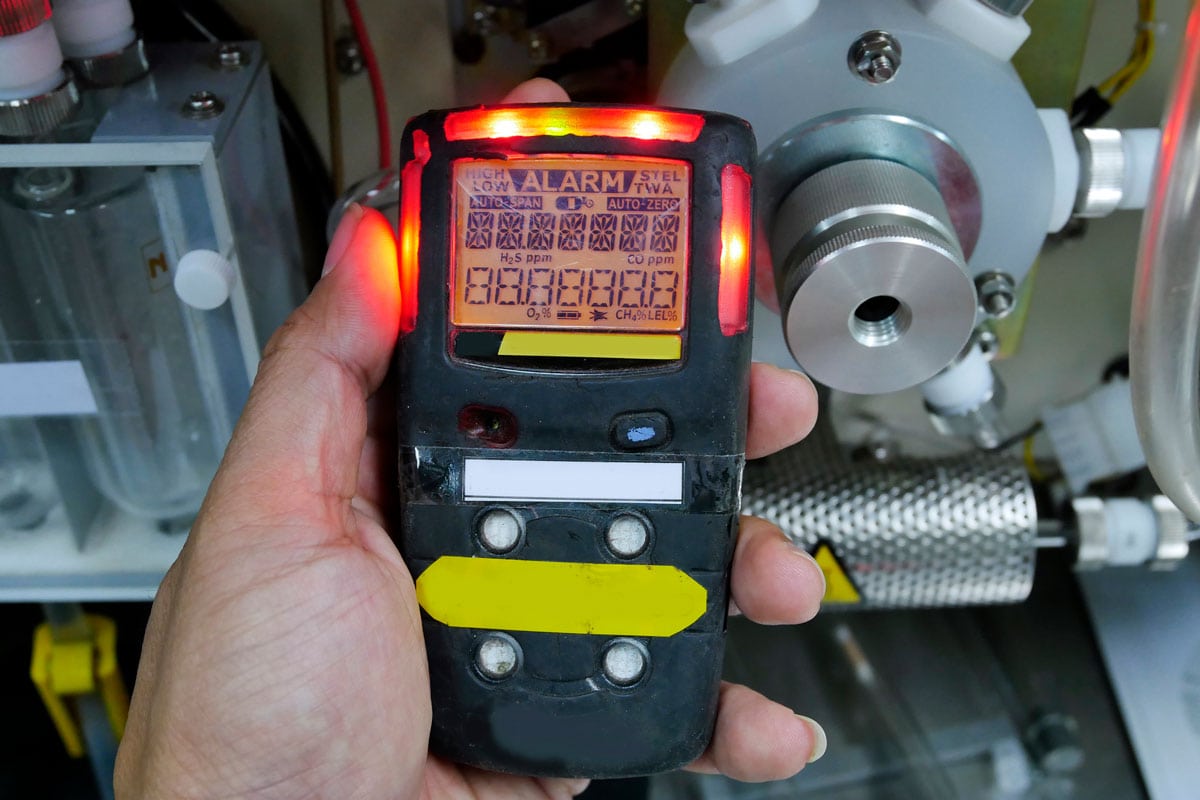
Most leak detection devices offer a different range of sensitivity, some of which are adjustable. Depending on the model, leak detectors have a sensitivity rating of 0.1 oz yearly, more or less.
If it comes with adjustable sensitivity levels, you can identify the location of leaks more precisely. The lower the sensitivity, the easier you can locate where the concentration is higher.
Note that some leak detectors may produce false readings, so checking the sensitivity rating is vital to get accurate results.
Other Ways To Detect A Freon Leak
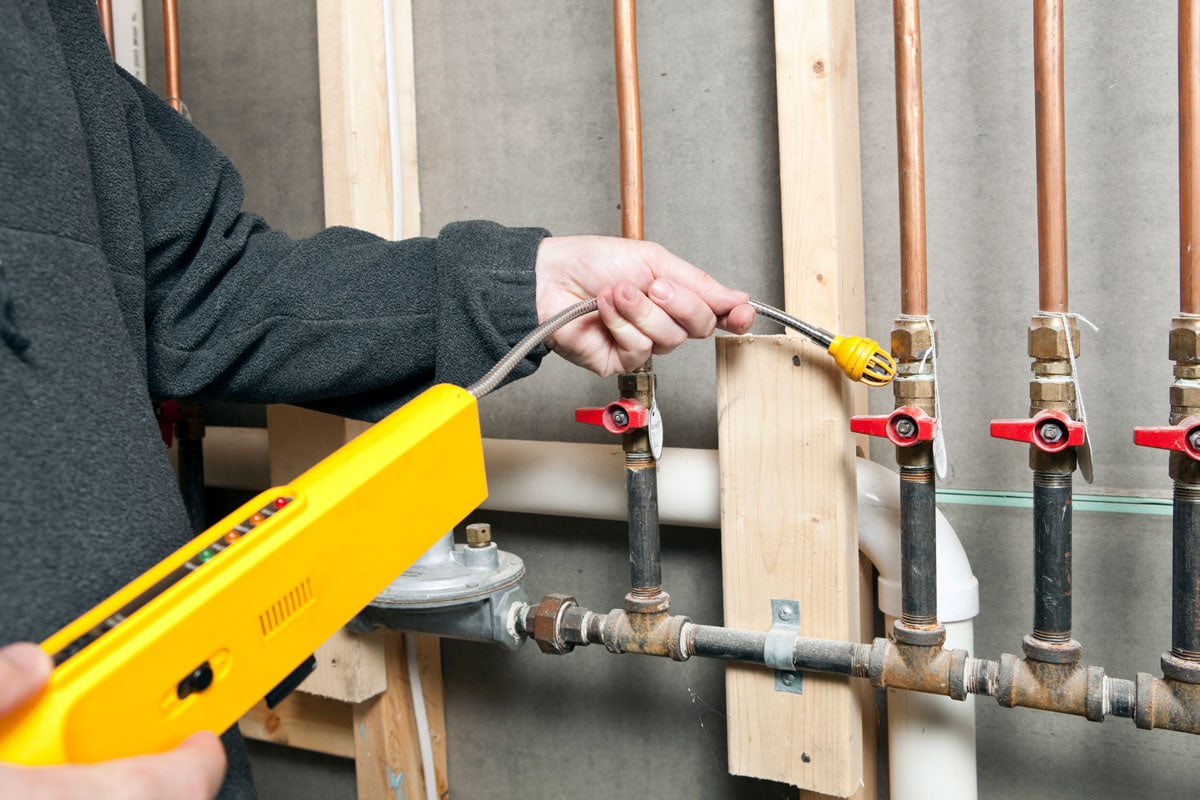
Leak detectors are a precise and efficient way to find Freon leaks, but availability may be a problem. If you can't find one, try these methods instead.
Soap Bubble Method
You must prepare a soap and water mixture for the soap bubble method. Apply the solution or a leak detection spray to the HVAC. Bubbles will appear at the leakage points.
Click here to get the HVAC leak bubbles and gas detector on Amazon.
This method is unsuitable for conditions where the leak is too small or when it's windy outdoors.
Ultraviolet Or Fluorescent Dye
When using ultraviolet or fluorescent dye, you should put a special dye into the refrigeration system, then allow it to circulate with the refrigerant.
The dye will escape from the leakage points. Using a UV lamp makes it easier to find them.
Check out this concentrated fluorescent leak detection dye on Amazon.
Note that the dye could affect the performance and operation of your HVAC in the long run. Avoid using this method if you own a fairly new cooling system.
Halide Torch
A rather old method of detecting leaks is using a halide torch. The color of its flame changes to green when exposed to the refrigerant, specifically when chlorine is present.
The intensity of the flame also changes with the size of a leak. While it works, experts prefer not to keep an open flame near refrigerant, especially with large leaks.
Signs Of Freon Leakage In HVAC
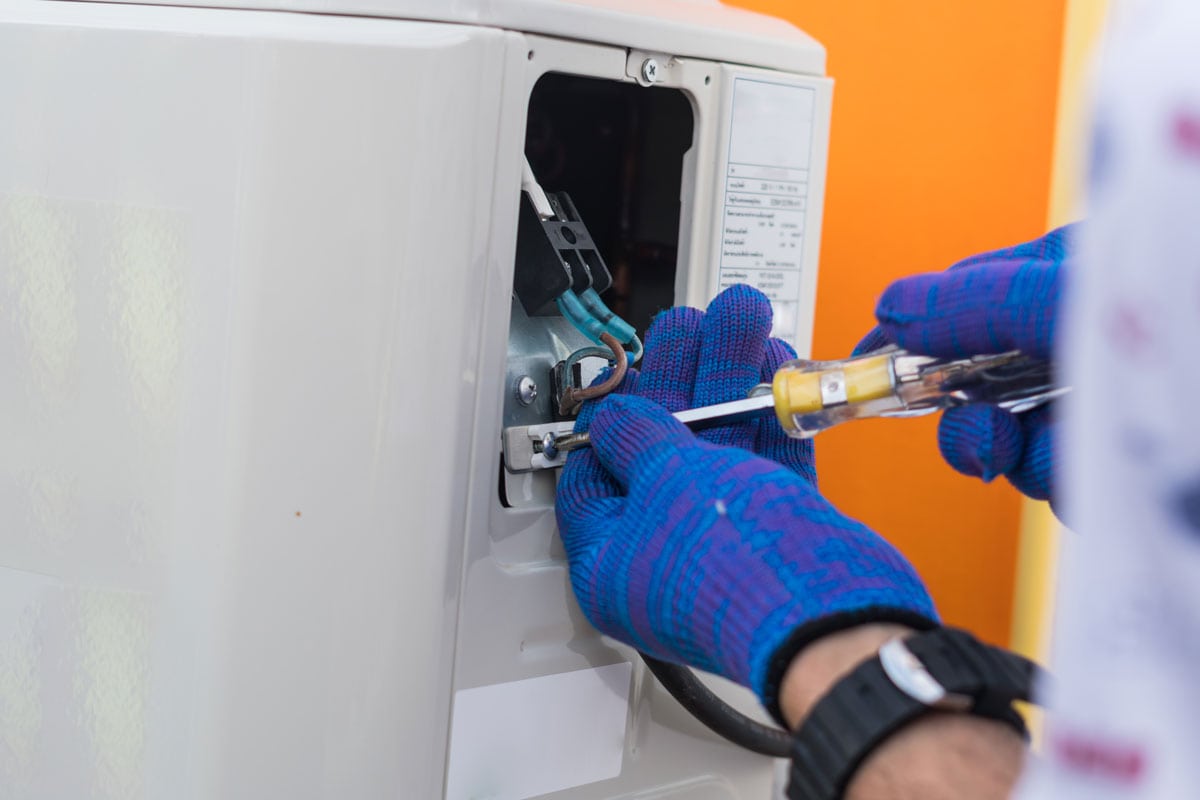
Too much refrigerant exposure can cause health complications that require emergency treatment. Mild exposure is generally harmless but may lead to difficulties.
Before it worsens, it's better to determine Freon leakage by examining your HVAC to see if it shows the following signs.
Low Or No Airflow
A leaking air conditioner cannot provide enough cool air due to low refrigerant levels. In some cases, it fails to produce airflow altogether.
If your cooling system is not distributing cold air, check the vents. If the air coming out is not cool, it could mean your AC is leaking.
AC Produces Warm Air
Because of the lack of refrigerant, you're likely to notice your AC producing warm air instead, even when it's not supposed to.
Read this post to know how much Freon is in an AC: How Much Freon In An Air Conditioner?
Higher Humidity Levels
If the humidity indoors increases by a large number, it could be due to lack of refrigerant.
You can try to lower humidity levels around your home and see if the source is something other than your AC. Once you confirm it may be your cooling system, you can proceed to check for leakage points.
Frost Build-Up In Coils And Lines
Ice forms in your air conditioner's evaporator coils or copper lines when insufficient refrigerant circulates through them. They have trouble absorbing heat, allowing the condensation on them to freeze.
The freezing could cause your cooling system to break, requiring major and costly repairs.
Increase In Energy Bills
When your AC performs inefficiently, it could cause a significant increase in energy costs. Because it has trouble cooling, it consumes more power.
Comparing your utility bills helps you determine where inconsistencies lie.
Longer Cooling
The role of refrigerant is to absorb heat from indoors, then release it outdoors. A leak lowers the refrigerant level in your cooling system, causing it to take longer to cool your space.
Hissing-Like Noises
You might start noticing hissing sounds coming from your air conditioning unit. These usually come from cracks in coils responsible for circulating refrigerant.
If the sound becomes louder and produces a gurgling noise, it could mean your AC's freon is leaking through a large hole.
Why Does My AC Have A Freon Leak?
Understanding the causes of a Freon leak also helps you figure out how you should make repairs. Here are a few reasons that may be responsible for it.
Natural Wear And Tear
As your HVAC system ages, it will likely show wear and tear. If you use your unit frequently or it lacks maintenance, it may show these sooner. Deterioration may occur as corrosion, cracks, holes, or weakening components.
Regular maintenance significantly impacts these results by consistently keeping your unit in top condition.
Loose Connections
Your air conditioner's joints and connectors may thin or erode as time passes, causing electrical connections to loosen.
These are relatively quick and cheap fixes but may lead to severe problems when left unrepaired.
Incorrect Installation
If you or your contractor installs your cooling system incorrectly, it could cause several issues, including refrigerant leaking. These are often due to improperly fitted parts where coolant gas or liquid escapes.
You can expect to pay anywhere from $500 to $17,000 to have an air conditioner installed by a professional.
Can I Repair A Freon Leak Myself?
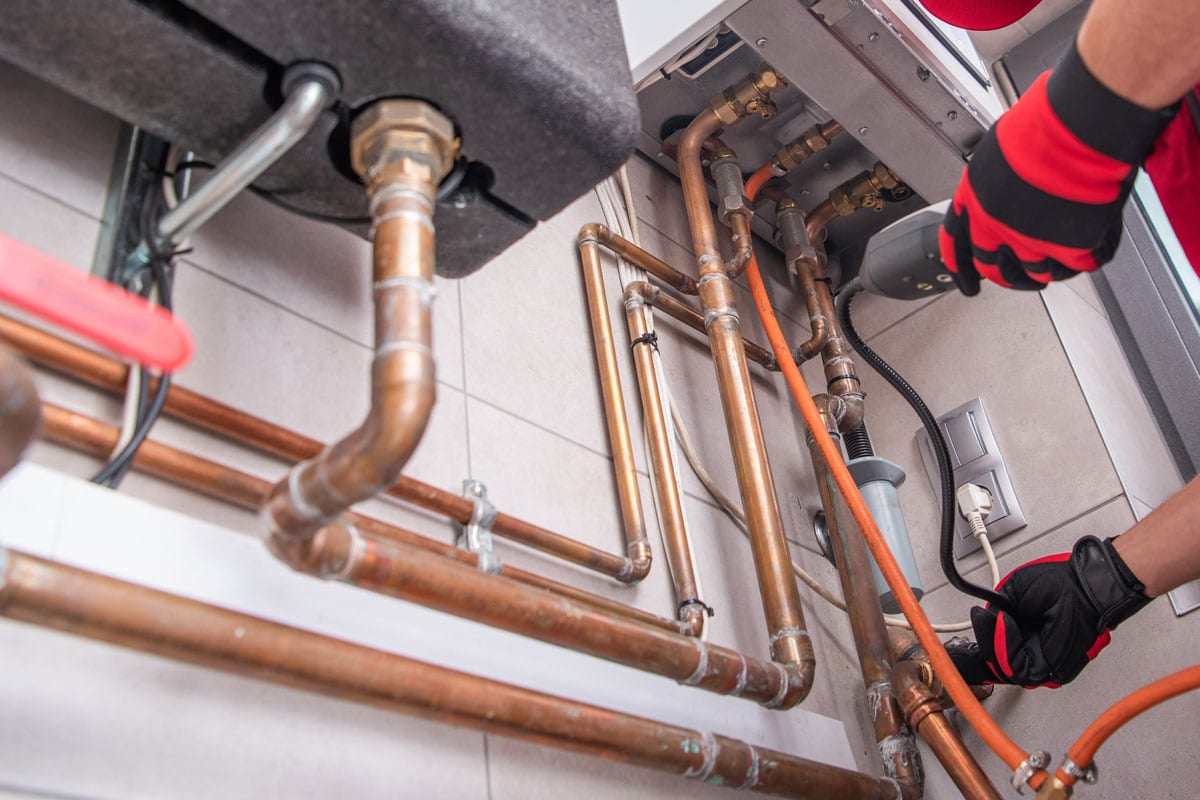
Yes, you can repair a Freon leak without the help of an HVAC professional. Note that this may depend on how your system works and the cause of the leakage.
1. Locate the condensate drain pipe.
Access your AC's condensate drain pipe. You can find it near or on the outdoor unit. If you can't locate it, check your owner's manual.
2. Clean the pipe.
Flush the condensate drain pipe with distilled vinegar or bleach and leave it for a few minutes. Use a wet-dry vacuum to clear it of any clogs.
3. Replace the filters.
Clean or replace your air conditioner filters if cleaning the condensate drain pipe doesn't stop the leaking. Blocked airflow and passage to the evaporator coil can lead to leaks.
4. Identify the location of the leak.
If both methods fail, try to seal the hole yourself.
Choose a leak detection method to determine the location of the concentrated leak. You can use a leak detector or follow the traditional ways instead.
5. Seal the hole.
Use a sealant or tape to seal small leaks. If the hole is large, it's best to leave it to the experts.
Contact an HVAC professional if the leaking doesn't stop or the symptoms persist.
Learn how to recover Freon by reading this post: How To Recover Freon Without A Machine
In Summary
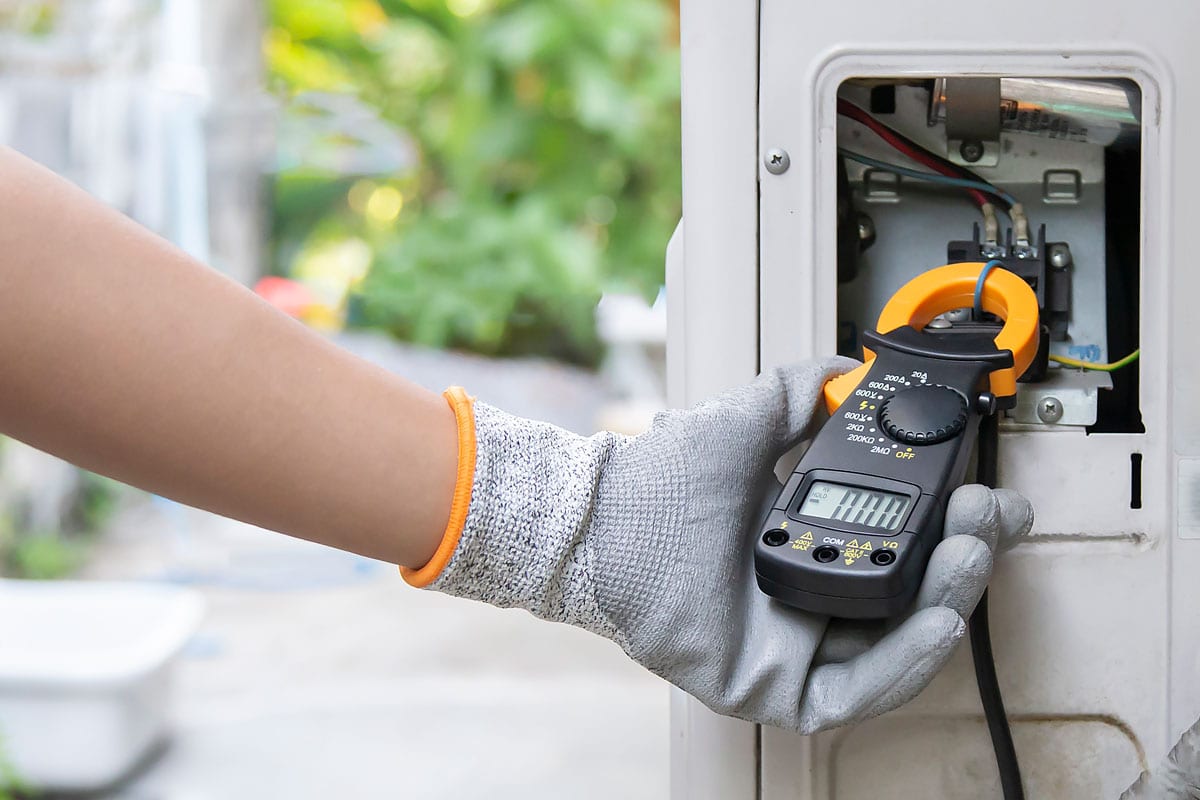
Exposure to Freon leaks can cause several complications later on, despite being primarily harmless. Freon leak detectors are one of the popular methods to identify refrigerant leaks in air conditioners because of their precision, efficiency, and convenience.
Other ways to determine the location of Freon leaks include using soap water, leak detection sprays, fluorescent dye, and even halide torches.


